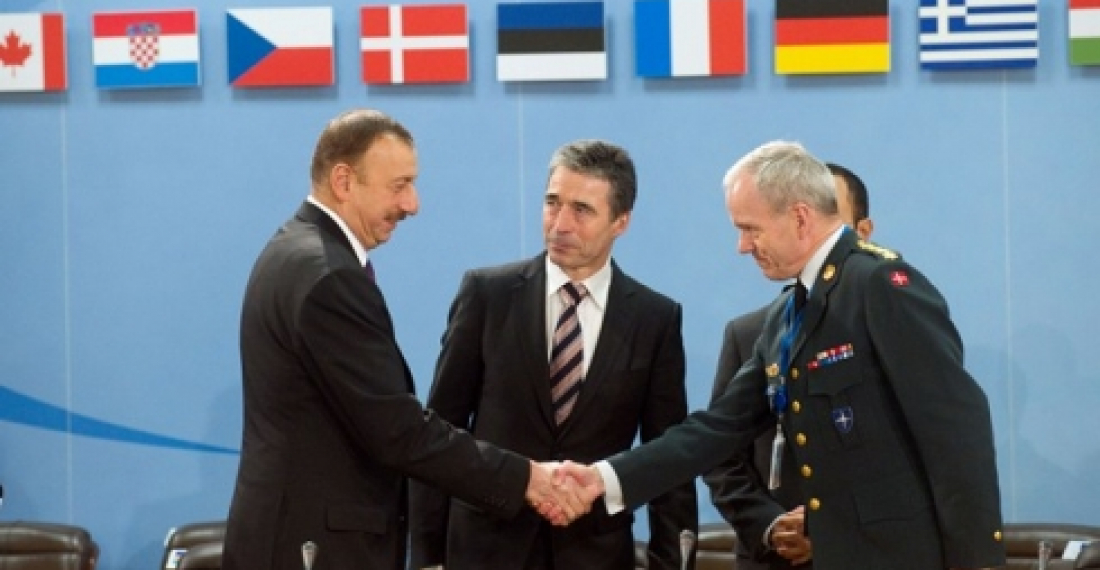President Ilham Aliev of Azerbaijan was yesterday received at NATO Headquarters in Brussels, where he met the Secretary General Anders Fogh Rasmussen and later addressed the representatives of the NATO member states gathered in the North Atlantic Council. Welcoming President Aliev the Secretary General said that for NATO "Azerbaijan was an important partner in an important country". The NATO chief welcomed the signing in December of a new Individual Partnership Action Plan with Azerbaijan and thanked the President for his country's contribution to the NATO mission in Afghanistan.
President Aliev on his part said that the relations between Azerbaijan and NATO have a history of success. The President spoke of the reforms being undertaken within the Azerbaijan Armed Forces in order to bring them to NATO standards and he said that the Azerbaijani Armed Forces had benefitted a lot from their participation in NATO missions throughout the world. On Afghanistan the President said that Azerbaijan was willing to contribute to the Afghan National Army Trust Fund and he also spoke about Azerbaijan's contribution to the training of Afghan diplomats at Azerbaijan's Diplomatic Academy. The Azerbaijani President briefed the NATO leadership on the current state of negotiations on the conflict over Nagorno-Karabakh and called for a solutiuon of the conflict based on existing United Nations Resolutions.
source: commonspace.eu
photo: President Ilham Aliyev of Azerbaijan shaking hands with General Knud Bartels, Chairman of the NATO Military Committee, during his visit to NATO Headquarters on 15 February 2012 (picture courtesy of the NATO Information Service).







